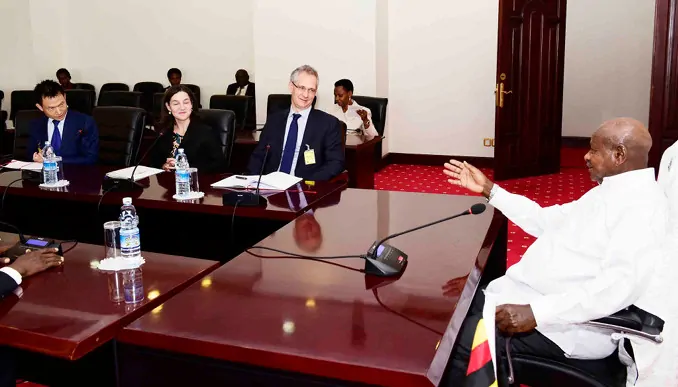
Bank of Uganda’s tight monetary policy has been successful in bringing down inflation to within target, the International Monetary Fund said on Tuesday. But, it also raised concerns about higher than anticipated government spending and lower tax collections in the 2015-16 financial year.
The central bank has “successfully steered core inflation toward its target of 5 percent and increased its international reserves buffer,” the fund said in a statement issued at the end of its review mission to Uganda under the Policy Support Instrument. It also commended Bank of Uganda’s reduction in the central bank rate, the fourth successive easing this year.
But even as it praised government for implementing more reforms to strengthen public financial management and for keeping poverty alleviation expenditures within budget, it noted that key fiscal policy targets were missed.
“While revenue collection increased as a share of GDP, it fell short of program expectations, reflecting lower than projected nominal GDP growth,” the review said. Uganda Revenue Authority missed its tax collection revenue target by Shs404.54 billion in the 2015-16 financial year, with collections coming in at Shs11.23 trillion against a target of Shs11.63 trillion. URA blamed the deficit on “hard economic times.”
Read More: Uganda Revenue Authority in collection shortfall for 2015/2016
The IMF also noted that government expenditure in the financial year was “higher than anticipated.” This, together with lower revenue collections, was responsible for missing the deficit target by 0.4% of GDP. Additionally, the fund said government did not repay outstanding Bank of Uganda advances at the end of the financial year, and was behind in executing externally funded projects.
The IMF said it hopes government adheres to 2016-17 spending objectives agreed to in the previous review. These include “raising the tax-to-GDP ratio by ½ percent of GDP, and prioritisation of social and development spending within a tight envelope.”
It also called on the government to strengthen project management “to ensure sound project selection and improve spending efficiency” so as it gets “value for money.” The review also urged government to “step up ongoing efforts to reduce and improve monitoring of government spending arrears, which undermine the budget process.”
The IMF team, which was led by Axel Schimmelpfennig, the Mission Chief for Uganda, also commented on Bank of Uganda’s takeover of Crane Bank and the financial sector, which it said “remains well capitalised,” even though “nonperforming loans have edged up.”
Speaking at a press conference called to announce the team’s findings, Bank of Uganda governor, Emmanuel Tumusiime-Mutebile said he is confident the bank will find an investor before the mandated six months during which the statutory manager will be in charge are over. Mutebile also dismissed reports that the bank is set to collapse, saying that will not happen.






